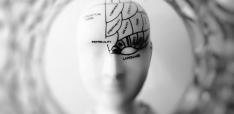Dementia is set to become a $2 Trillion Global Crisis. Here's Why

The world’s population is ageing. Improvements in healthcare in the past century have meant people are living longer, but this has also resulted in an increase in the number of people with conditions like dementia. Projections indicate that the number of people with dementia will only continue to grow.
Despite this, global diagnosis rates are low. People are receiving sub-standard or no care and stigma in many communities remains rife.
But dementia is an issue that can no longer be overlooked.
This World Alzheimer’s Day, the Global Alzheimer’s and Dementia Action Alliance (GADAA) is urging people to recognize dementia as one of the biggest global health crises of the 21st century. Here’s why…
1. The world’s economy is set to lose a trillion dollars in 2018, rising to $2 trillion by 2030 unless dementia is tackled.
That’s a cost greater than the GDP of all but the 15 richest economies in the world. If global
dementia costs were a country, it would be the 16th largest, in-between Indonesia and Mexico.
Dementia already exceeds the market value of the world largest companies such as Apple (US $742 billion) and Google (US $368 billion). Eighty per cent of these costs account for the unpaid and formal care for people living with dementia, two-thirds of which is delivered by women.
2. Dementia affects almost 50 million people worldwide, with a new case of dementia occurring somewhere in the world every 3 seconds.
Worryingly, ageing populations – especially in low to middle income countries (LMICs) – are set to exacerbate prevalence rates. The potential ramifications of this are huge. More than half of people with dementia worldwide (58%) live in LMICs – and the number in some regions is expected to increase fivefold by 2050. The number of people living with dementia in high income countries is also expected to double by 2050.
Despite this, many countries are unprepared for financing long-term care. As social changes in LMICs mean less family members are able to provide care, the urgent need for social care will shift to the formal sector.
3. As few as one in 10 individuals receives a diagnosis for dementia in low and middle income countries, and less than 50% are diagnosed in high income countries.
Globally there is a persistent lack of understanding that dementia is a medical condition and not a normal part of ageing. People living with dementia all over the world desperately need access to a medical practitioner who can provide a diagnosis and help to plan necessary support.
Risk reduction strategies and earlier diagnosis of dementia could save government expenditure by reducing the high cost of emergency and avoidable health interventions, improving care, and by increasing the effectiveness of social, community and other care services.
4. Two out of every three people globally believe there is little or no understanding of dementia in their countries.
People living with dementia and their families frequently face stigma and discrimination – and in some parts of the world can even face violence. Dementia can also have a negative impact on employability – younger people with dementia have reported being made redundant or unable to find work due to discrimination or lack of understanding. This can have an impact on employment rates and social welfare benefits.
Worryingly, in some countries, there’s not even a word for dementia, with many people affected accused of witchcraft and at risk of threats of violence. A lack of recognition or understanding of the condition permeates from within the community right up to a policy level.
Tsepiso is a medical professional and volunteer staff member of Lesotho’s Alzheimer’s association. “Can you imagine seeing an old woman walking alone at night, sometimes undressed?" he asks. "That’s a full explanation for a witch.
"My father-in-law suffered with the same problem and he we lost him two years back, he was such a gentleman, dignified, commanded a lot of respect. When he was attacked by men, he just lost himself and that really got to me – as a counsellor seeing it that close was different – seeing him deteriorate and go through those stages pained me. I was talking on a radio phone-in show about this problem and the response was beautiful – people were beginning to say: ‘OK now we understand.’ And people were accepting that they have such people in their families. But the last caller said: ‘OK we understand what you’re saying, but we should still remember that we have witches.’”
5. Dementia is in the top 10 causes of death for women worldwide.
The World Health Organisation lists dementia as one of the top 10 causes of death for women and it is the top cause of death for females in the UK. Research shows that women not only face a greater prevalence of the condition, but also fulfill the majority of care support and face the greatest stigma.
But so far only 12 countries have taken into consideration the needs of women in their commitments and only 29 countries have a national dementia plan. Around the world people remain trapped in a perennial struggle to access the diagnosis, care and support that they desperately need - and for women the challenge is even greater.
Global leaders have a responsibility to meet the targets of the World Health Organization Global Dementia Action Plan. Governments around the world must urgently recognize dementia as a medical condition that needs action, and unite in ensuring better diagnosis, care, research and awareness through the development and implementation of national dementia plans in every country in the world.
International civil society also has a role to play in addressing the stigma and delivering change for people living with dementia. We need as many voices as possible to spread the word that dementia is not a normal part of ageing, but one of the most prevalent and under-supported medical conditions the world over.
World Alzheimer’s Day is an opportunity for organizations around the world to raise awareness, highlight issues faced by people affected by dementia and demonstrate how we can overcome them to help people live well with dementia.
Together we can transform society so people with dementia are included, understood and supported to live a life they choose.
Jeremy Hughes, Chair , Global Alzheimer’s and Dementia Action Alliance. This post first appeared on the Agenda blog.
Photo Credit: Iburiedpaul Via Flickr (CC BY 2.0)


